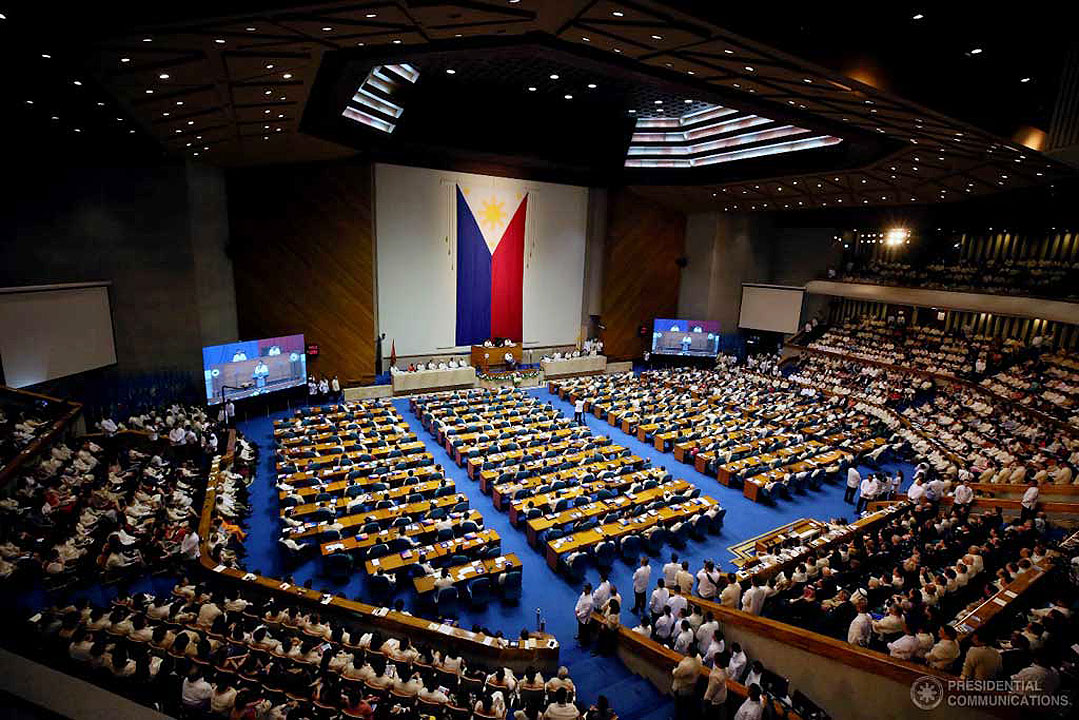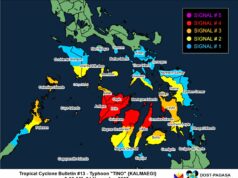Congressmen file bills vs high prices, low wages on first day of their term

By Kenneth Christiane L. Basilio, Reporter
PHILIPPINE LAWMAKERS on Monday jump-started the legislative mill under the 20th Congress by filing bills on key socioeconomic issues including high rice prices, healthcare, low wages and education.
Congressional staff lined up at the House of Representatives to file the measures on the first day of their bosses’ term, with the queue starting as early as 5 a.m.
“We can see that the need for affordable basic necessities remains pressing for our people,” House spokeswoman Priscilla Marie T. Abante told a news briefing in Filipino.
Lawmakers won’t start sessions until July 28, when President Ferdinand R. Marcos, Jr. delivers his fourth annual state of the nation address before Congress.
Leyte Rep. Ferdinand Martin G. Romualdez submitted the first bill, which seeks to reform the National Food Authority (NFA) as part of efforts to bring down rice prices, according to a copy of the measure sent to reporters.
House Bill No. 1 seeks to amend a law that liberalized the rice industry by restoring the NFA’s regulatory powers, allowing it to intervene in the rice market when there are price spikes.
The measure also lets the NFA’s inspect grain warehouses and seize hoarded rice stocks and release them to the public to keep rice prices down during shortages and suspected market manipulation.
It also proposes to allow the NFA to maintain buffer rice stocks from local rice farmers and empowers the agency to set floor prices for rough rice.
“We cannot fight hunger without confronting price manipulation,” Mr. Romualdez said in a statement. “This bill is not about going backwards to failed models. It is about smarter regulation.”
Another Romualdez bill seeks to exempt overseas Filipino workers (OFW) from premium contributions to the Philippine Health Insurance Corp. (PhilHealth), he said in the statement.
House Bill No. 2 proposes that OFWs’ monthly PhilHealth contributions be charged and equally shared by the National Government and their foreign employers. Any rate hikes should undergo an actuarial review and require congressional approval.
The measure also seeks to ban the transfer of PhilHealth funds to government coffers, Mr. Romualdez added.
Meanwhile, Party-list Rep. Raymond Democrito C. Mendoza filed a bill for a P200 across-the-board wage increase, which the previous Congress failed to ratify after economic managers warned about its effects on the economy.
“We refiled the P200 legislated wage hike bill as the Trade Union Congress of the Philippines’ first measure because it is the top priority of the working-class majority of our people,” he said in a separate statement.
Party-list Rep. Elijah R. San Fernando also filed a bill that seeks to abolish regional wage boards and push a “universal minimum wage floor.” A copy of the bill was not immediately available.
“What we intend to do in the 20th Congress is to have a uniform wage floor,” he told reporters after filing his bill, which will repeal a 1980s law that created regional wage boards.
“There’s no logic behind provincial [wage] rates,” he pointed out.
A bill seeking a P1,200 minimum wage was also filed on Monday by Party-list Rep. Antonio L. Tinio, which he said is crucial in lifting Filipinos out of poverty. A copy of the measure was not immediately available.
“This is what a family needs in order to live with dignity,” he told reporters in Filipino on the sidelines of the bill’s filing.
The Philippines sets minimum wages regionally through wage boards, but lawmakers argue the system delivers slow and meager increases that fail to keep up with rising prices.
Congressmen also filed various education-related bills including proposals seeking to streamline the private school voucher program for students and provide them with direct cash assistance.
“This measure will strengthen our support to students who choose private schools, especially those in overcrowded or underserved areas,” Mr. Romualdez said, referring to House Bill No. 4, which offers students an education voucher with a value tailored to their economic status.
“Qualified students from middle-income and underprivileged families will be granted government-issued vouchers to enroll in private basic education schools when public schools in their area are either congested or unavailable,” he said in a separate statement.
Mr. Romualdez also proposes to create a Bureau of Private Education under the Education department. It will oversee the government’s implementation of his proposed voucher subsidies.
“Education is something that almost all of us here in Congress believe should continue to receive support from our government,” Batangas Rep. Leandro L. Leviste told reporters after personally filing his bill that seeks to give students direct cash assistance.
“I thought of taking swift action by providing educational assistance through a cash transfer for all students, as long as they are attending their classes,” he said in Filipino. “This would help cover their needs for food, transportation, technology and school supplies.”



